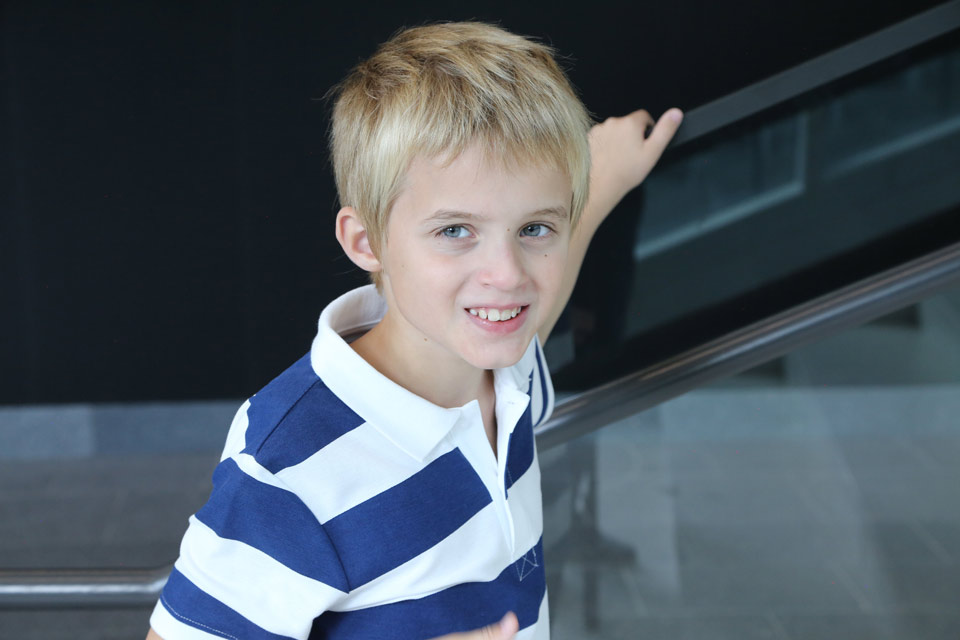Tore's mother Jenny says:
"It turned out that our son Tore, now 10 years old, has a mutation on the gene GRIN2B in chromosome 12.
Today there are about 300 diagnosed children in the world. So how has a diagnosis made a difference in our lives, and especially Tore's, lives? Well, it gave us answers to several important questions! Our concern that Tore would have a disease with a progressive progression and a far too early death as a result could be completely ruled out. We were told that Tore's siblings would not have to worry in the future for the diagnosis to be passed on. The mutation is a so-called "nymutation" that has occurred by unfortunate coincidence. Knowing it also took away a lot of blame from us parents who for years had worried us that we ourselves, unwittingly, had caused Tore's difficulties.
With a diagnosis, we got in touch with other parents in Sweden and around the world. All of a sudden, we didn't feel alone! We had others to exchange experiences with, get tips from and share joy and sadness with. What happiness, especially considering that no research is done in Sweden. Thanks to him, Tore is now part of an international study. With the help of a supplement of a protein, we hope that Tore will be able to make progress in development. Our greatest hope is that Tore's speech will get underway!
A diagnosis has therefore been of the utmost importance, both for Tore and for us as a family!"

Photo: Rick Guidotti Positive Exposure
At present, a large number of those who have a rare disease medicine lack ing against their specific diagnosis. What is gratifying is that a lot is going on and many research projects are ongoing.







